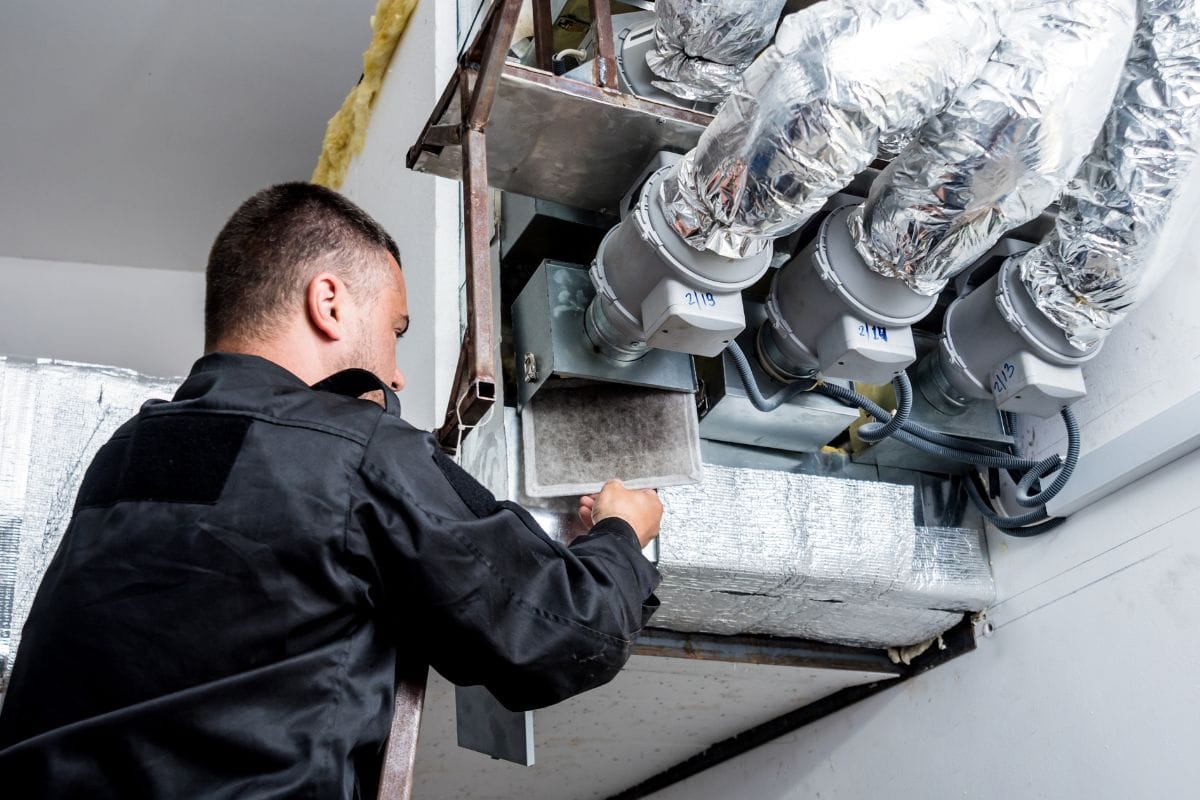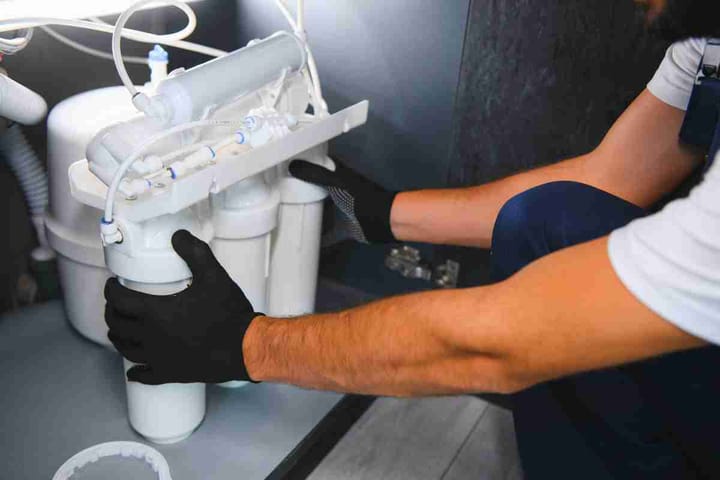Building a Career in Comfort: Your Guide to HVAC Training
Heat Up Your Career! Explore lucrative HVAC jobs, training options & paths. Find your perfect program & launch your success in this stable, growing field.

Considering a career in heating, ventilation, air conditioning, and refrigeration, you've come to the right place. The HVAC industry offers stable, lucrative jobs with ample specialization and advancement opportunities. This guide will provide an in-depth look at HVAC training, explore high-demand career paths, provide training options, show how to choose the right program and provide tips for launching your HVAC career.
Why Choose HVAC Training?
Before diving into specifics, let's address the fundamental question: why choose HVAC training? Here are just a few compelling reasons:
- High Demand
With over 300,000 current job openings in HVAC and increasing industry growth projected over the next decade, qualified technicians are in high demand across residential, commercial, and industrial sectors. Investing in HVAC training sets you up for ample job opportunities nationwide.
- Competitive Salaries
Skilled HVAC techs and installers can expect strong compensation packages, with median annual salaries ranging from $47,000 up to $80,000, depending on specialization and experience level. Lucrative overtime, incentives, and benefit packages provide further earnings potential.
- Job Security
As long as people inhabit structures in temperate climates, there will be a fundamental need for climate control services. HVAC offers recession-resilient career stability compared to roles in more volatile industries.
- Skilled Trades Advantage
Beyond job security, skilled trades careers like HVAC offer other advantages like avoiding student loan debt, earning as you learn via apprenticeships, engaging in hands-on work, and the satisfaction of providing an essential service.
- Variety and Specialization
HVAC encompasses diverse sub-fields, allowing technicians to specialize in the most interesting systems, from oil furnaces to commercial chillers. Ongoing training also enables veterans to command top dollar as expert troubleshooters.
Exploring the HVAC Industry
Now that you're intrigued let's delve deeper into the HVAC world. Here's a breakdown of the major areas within the industry:
- Residential HVAC
Focused on climate control systems for single-family homes, residential HVAC techs install, maintain, and repair equipment like furnaces, central air conditioners, heat pumps, ductwork, and vents. Most residential HVAC pros work for contracting companies or independent shops.
- Commercial HVAC
Commercial HVAC techs tackle large-scale systems like rooftop units, chillers, air handlers, and boiler systems for mid and high-rise buildings. Troubleshooting and optimizing performance for complex commercial equipment requires advanced technical knowledge.
- Refrigeration
Refrigeration techs specialize in the units that keep perishable goods safely chilled and frozen during transport and storage, with duties focused on grocery store refrigeration cases, refrigerated warehouses, and commercial transport vehicles.
Controls
HVAC control techs have a specialized understanding of the digital systems that monitor and regulate building temperatures and airflow. They calibrate smart sensors, analyze data trends, and optimize efficiency.
Choosing the Right Training Path
With diverse career options within the HVAC industry, various training paths exist. Here are the main choices:
- Apprenticeship
Paid on-the-job training under an experienced mentor, apprenticeships provide well-rounded practical experience informed by supplementary technical classes. Many apprentices earn an associate degree or journeyman certificate over 2-5 years.
- Technical School
Condensed 1-2 year trade school programs focus intensely on hands-on skills informed by classroom lectures and textbooks. Graduates earn a diploma or certificate. HVAC technician training programs are commonly available at career and technical schools.
- Community College
Earning an HVAC associate degree via a 2-year community college program combines broad theoretical foundations and general education with applied labs and shop classes. Optional internships provide field experience.
- Online Training
Accredited online HVAC training programs for students needing flexible scheduling lead to certification. Combining virtual lectures, simulations, and video demonstrations with in-person labs at designated sites provides well-rounded technical and practical preparation.
Finding the Perfect Training Program
When choosing a training program, consider these factors:
- Accreditation
Seeking out a program accredited by HVAC Excellence, PAHRA, or an institutional accreditor ensures quality, up-to-date technical instruction that meets industry standards.
- Curriculum
Look for a program that provides foundations in core concepts like thermodynamics and heat transfer and specialized training in key areas like installation, maintenance, troubleshooting, indoor air quality, and energy efficiency.
- Hands-on Experience
Prioritize programs offering extensive hands-on training in campus labs furnished with residential and commercial HVAC equipment simulating real-world working conditions.
- Cost and Financial Aid
Compare program costs and financial aid options like scholarships, loans, and grants. Employer/union apprenticeships earn while you learn.
- Location and Schedule
Consider whether the program schedule fits your situation through options like night classes, online learning, and accelerated formats. Onsite training may require relocation.
Gearing Up for Success
Beyond choosing the right program, here are some tips to maximize your learning experience:
- Stay Engaged
Be an active learner by asking questions in lectures, thoroughly reviewing assignments, and seeking extra help to resolve any knowledge gaps quickly.
- Network
Get to know peers and instructors who can become lifelong professional contacts and mentors. Consider joining your local HVAC association as a student member.
- Practice Consistently
Reinforce theoretical concepts through hands-on practice. If your program lacks shop access between classes, consider a home improvement project like installing a window AC unit.
- Prepare for Certifications
Many HVAC technician roles require EPA, NATE, or industry-specific certifications, which demonstrate competence to employers. Use course reviews and practice tests to confirm your readiness to pass.
Launching Your HVAC Career
Once you've completed your training, it's time to land your dream job. Here's how to get started:
- Update your resume and portfolio
Showcase new HVAC proficiencies, training, hands-on labs, and any internship experience. Highlight any specialized electives or concentrations you focused on.
- Target your job search.
Seeking HVAC jobs related to your specific training area will optimize your chances of landing interviews. Those with refrigeration training will favor roles in cold storage and transport.
- Leverage your network
Instructors, association contacts, and peers in training may connect you with job openings at their companies. Many HVAC companies also offer signing bonuses for new tech referrals.
Conclusion
With excellent job prospects across residential, commercial, and industrial sectors, HVAC offers stable, in-demand careers with strong compensation. Required technical training is accessible through apprenticeships, trade schools, community colleges, or online programs offering flexible and affordable options. Once training is complete, several paths lie open to launch your career, maintaining comfort and efficiency through climate control excellence.




Comments ()